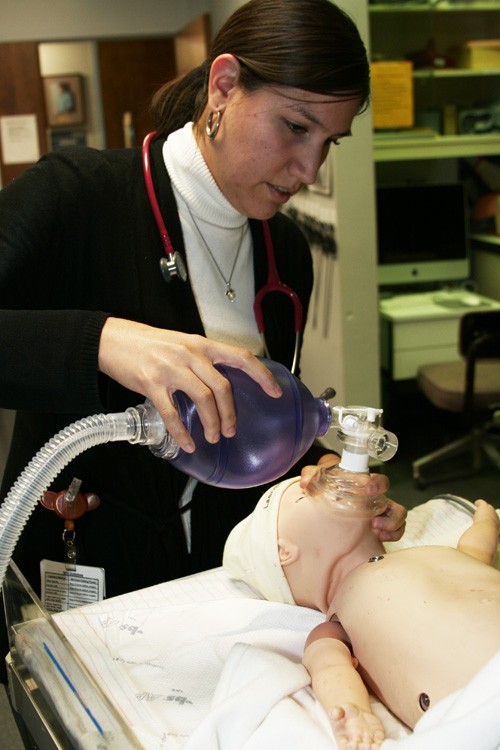Primary care physicians are seen as overworked and underpaid by many students entering the medical field.
This perception may contribute to the national shortage in the field. Positions in family medicine, internal medicine and pediatrics offered to graduating medical students have gone unfilled for the past several years. In 2010, about 33 percent of medical school graduates entered primary care, according to the National Resident Matching Program.
The UA College of Medicine exceeded the national average by sending about 38 percent of its 110 May graduates into primary care.
“”It’s definitely on our radar screen,”” said Kevin Moynahan, a primary care physician and deputy dean of education for the College of Medicine. “”We’re very proud of that.””
The shortage continues to affect patients, especially in rural or underserved areas. Arizona is particularly in need, ranking 43rd in the nation in its ratio of primary care physicians to population, according to the United Health Foundation.
“”I think having a doctor who cares for you and knows you as a human being should be the cornerstone of the U.S. healthcare system,”” Moynahan said.
The field may appear unattractive to medical students because of the patient load and the amount of paperwork primary care physicians handle, Moynahan added.
“”The system as it stands now makes the life of a primary care practitioner kind of chaotic,”” Moynahan said. “”People see that when they rotate. They see a lot of very busy people with a lot of responsibilities.””
Michelle Aguilar graduated from the College of Medicine in May and is an intern in pediatrics at University Medical Center. She said students can be deterred by the challenges of the field.
“”If you’re a primary care physician, you have to have a broad knowledge of many, many things, which can be overwhelming and daunting,”” Aguilar said.
Salary is also a concern, according to Aguilar, since primary care physicians do not make as much money as doctors who specialize. She said this concern is greater in the midst of health care reform, as doctors do not know how they will be paid.
Harish Narayanan, a first year medical student, said his reservation about primary care is a lack of research opportunities.
“”I’m into the academic side, so something with research potential,”” Narayanan said. “”Something where I can learn every day. It is possible to do both, but I’m not interested in doing the same thing over and over.””
For students who do enter the field, their interest often precedes medical school.
“”I was always taught by (my) family to give back to people,”” Aguilar said. “”For me, that translated into giving back to the community. I didn’t come into medicine to make money, so that part wasn’t a concern.””
For those who do not know what they want to do, experiences in medical school can be the deciding factor.
Moynahan said several programs in the College of Medicine expose students to the challenges and rewards of primary care.
The Rural Health Professions Program brings first-year medical students into rural communities in Arizona. These communities have limited access to medical technology.
“”They really get to know the community they work in really well,”” Moynahan said. “”It really solidifies their interest in primary care.””
Student groups and clubs also give support and information to those considering the field.
The UA chapter of the American Medical Student Association organized a week of lectures in recoginization of National Primary Care Week. Speakers from various primary care fields are giving lunchtime lectures every day this week.
Second-year medical student Charity Reynolds said these lectures help inform students about possible careers.
“”There’s a lot about primary care not everyone knows about,”” Reynolds said. “”It brings different aspects of primary care.””
Narayanan said the lectures exposed him to possibilities in the field.
“”This helped for sure.””









